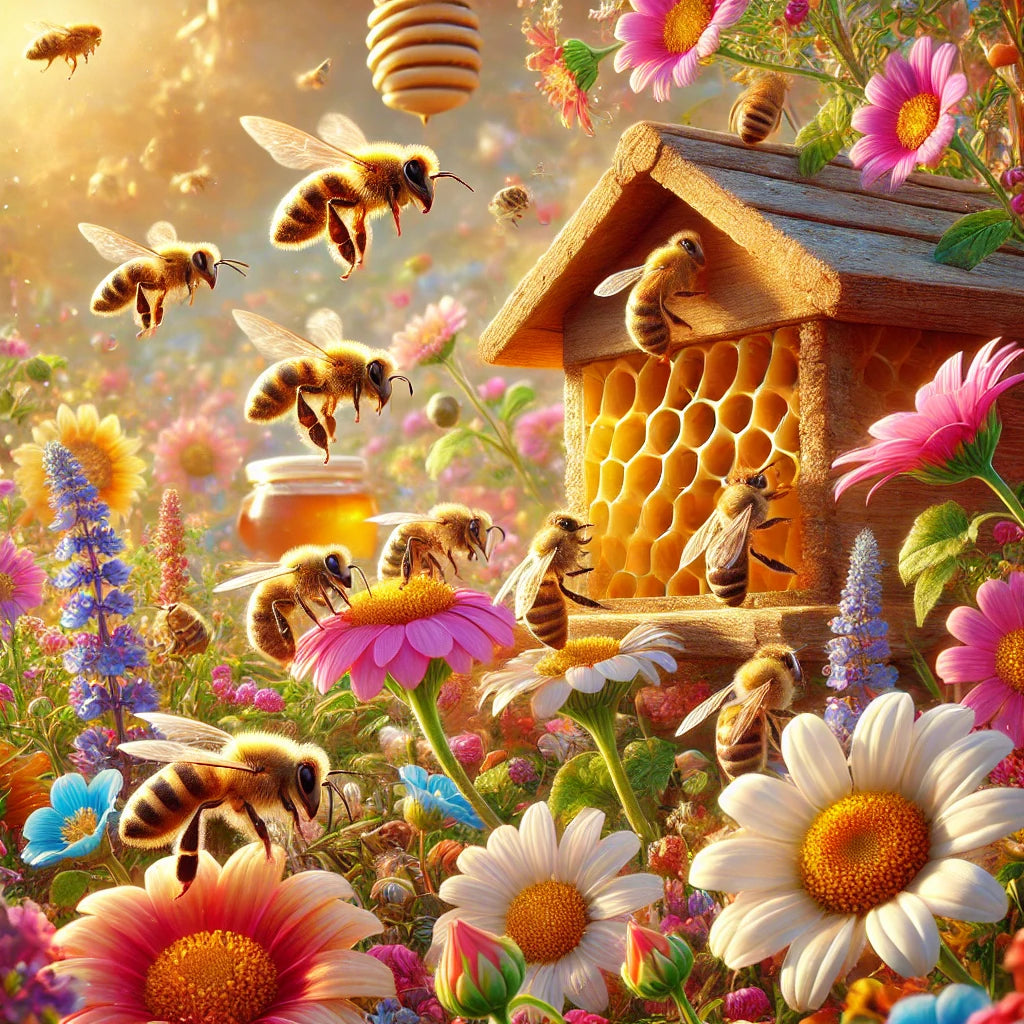Bees are fascinating creatures known for their intricate roles in nature, from pollinating plants to producing honey. However, one curious behavior that has puzzled both beekeepers and researchers alike is why bees sometimes visit latrines or sources of animal waste while they’re making honey.
This behavior may seem odd, but it actually has practical and beneficial reasons rooted in their biology and honey-making process.
The Purpose of Bees Visiting Latrines
When bees visit latrines, they are often seeking minerals and nutrients that are absent in their usual diet of nectar and pollen. Latrines, which include places where animals or even humans relieve themselves, can provide bees with essential micronutrients like sodium and nitrogen. These trace elements play a vital role in supporting the life cycle of bees and the overall health of the colony.
Why Bees Make Honey
Understanding why bees make honey can shed light on their visit to unusual sources like latrines. Bees collect nectar to make honey, which serves as their primary food source during the winter months. The honey-making process involves converting nectar into honey by regurgitating it and reducing its water content. This stored food provides the bees with energy when flowers are scarce.
In addition to making honey for food, bees also need a variety of nutrients to support their immune systems, bodily functions, and overall health. Visiting latrines provides access to salts and minerals not typically found in nectar, enhancing their diet.
The Connection to Honey Production
Bees are highly selective when it comes to their foraging habits, but they sometimes venture outside the usual nectar sources to ensure their colony thrives. Visiting latrines may seem like a risky move, but it's a calculated behavior. The nutrients they gather from these sources can enhance their honey production, supporting the colony’s health during the colder months when resources are scarce.
Furthermore, why are honeybees so vital to agriculture emphasizes their ability to support biodiversity through pollination. Healthy bees mean healthier plants and crops, making their occasional visit to latrines more understandable from an ecological perspective.
How Beekeepers Can Address This Behavior
For beekeepers, the occasional sighting of bees at latrines might raise concern. However, it is a natural part of their survival strategy. You can help minimize this behavior by ensuring your bees have access to a balanced diet, rich in essential nutrients. Providing bees with access to salt licks or mineral water stations is one way to keep them away from less desirable sources like latrines.
If you're just getting started and want to learn how to start a bee farm, this is a useful tip to ensure your bees are well-nourished and focus on producing high-quality honey.
Benefits to Bees from Latrines
While it may seem odd for bees to gather minerals from such unconventional sources, there are clear benefits:
- Enhanced Nutritional Profile: Latrines provide bees with essential trace elements like sodium, which help regulate bodily functions and boost the immune system.
- Support for Swarming: A well-nourished bee colony is more likely to thrive and reproduce, meaning that a colony with access to diverse food sources—including occasional visits to latrines—is less prone to illness and more likely to produce strong honey bee swarms.
Support Your Bees with the Right Nutrients and Tools From Swarm Commander
Though it may seem surprising, bees visiting latrines serve a greater purpose for their health and longevity. By gathering essential minerals and nutrients, they ensure the well-being of their colony, improving honey production and supporting their crucial role in ecosystems.
Visit SwarmCommander to explore products that boost your colony’s health, from bee trap attractants to protective clothing and beetle traps for beehives..
Frequently Asked Questions About Bee Behavior and Latrines
Q1. Is it harmful for bees to visit latrines?
No, bees visit latrines primarily to gather essential minerals and nutrients. As long as they are foraging in small amounts, it does not harm the colony.
Q2. Can I provide an alternative to latrines for my bees?
Yes, offering mineral water sources or salt licks can help provide bees with the nutrients they seek from latrines. This can reduce their need to visit such areas.
Q3. Does the honey made by bees that visit latrines taste different?
No, the honey itself is not affected by bees visiting latrines, as the minerals gathered are used for the bees' health and not directly in honey production.
Q4. How can I keep bees away from latrines?
Ensure your bees have access to nutrient-rich foraging options, and consider placing water stations with added minerals nearby to deter them from seeking out latrines.
Q5. Do all bee species exhibit this behavior?
While many bees may occasionally visit latrines for nutrients, it is more common in honey bees because of their high energy needs during the honey-making process.



